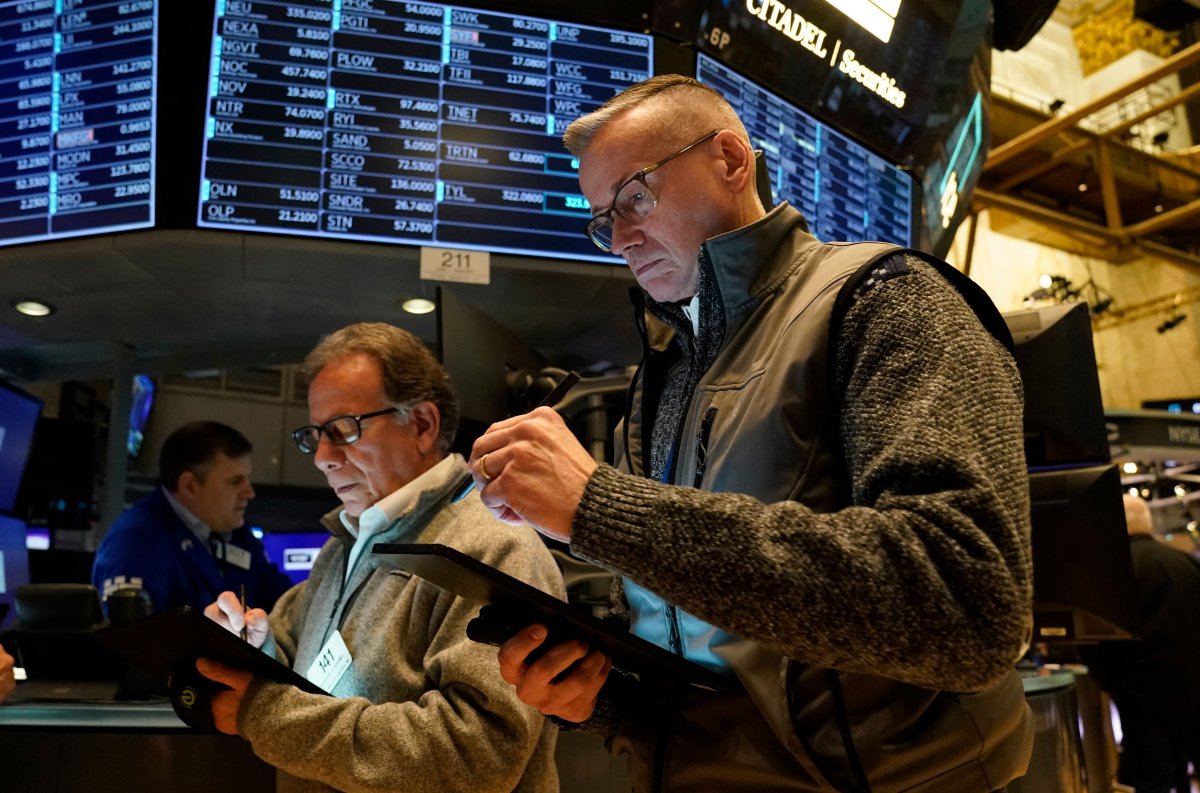Some banks had trading shares halted on Tuesday morning after a drop in value amid ongoing widespread economic concerns in the United States.
On the New York Stock Exchange (NYSE) website, a full list of regulator halts showed that both Western Alliance Bank and PacWest Bancorp were placed under a LULD Pause, also known as a "Limit Up Limit Down" halt. Both Western Alliance Bank and PacWest Bancorp had their halts lifted as of publication.
The trading halts came shortly after the banks experienced a decrease in share prices. Share prices of PacWest Bancorp fell over 30 percent by 10:49 a.m. ET, Yahoo Finance reported. Similarly, the share prices of Western Alliance Bank fell over 20 percent by 10:50 a.m. ET on Monday.
Trading halts are "typically applied ahead of a news announcement, to correct an order imbalance, or as a result of a large and abrupt change in the share price," according to Investopedia.

Newsweek reached out to Western Alliance Bank via email for comment.
In addition to Western Alliance and PacWest, other regional banks also saw a drop in share price on Tuesday.
"KBW REGIONAL BANK INDEX FALLS 3.8%, LOWEST SINCE NOVEMBER 2020," NewsWireUS wrote in a tweet.
The Kobeissi Letter Twitter account said: "JUST IN: Regional bank stocks are plunging with multiple stocks down 20%+ in a matter of minutes...Metropolitan Bank, $MCB, now down 24%, stock halted. Buckle up."
Following the collapse of Silicon Valley Bank earlier this year, a number of other banks had share trading halted but these regulatory halts were lifted shortly after. The Federal Deposit Insurance Corporation (FDIC) was later appointed the receiver of the Silicon Valley Bank following its collapse.
Additionally, earlier this week, First Republic Bank collapsed and was seized by regulators in California. Most of the bank's assets were purchased by JPMorgan Chase following its collapse.
"As part of the transaction, First Republic Bank's 84 offices in eight states will reopen as branches of JPMorgan Chase Bank, National Association, today during normal business hours. All depositors of First Republic Bank will become depositors of JPMorgan Chase Bank, National Association, and will have full access to all of their deposits," the FDIC said in a statement following the collapse.
The failures of First Republic Bank and Silicon Valley Bank have continued to spark widespread concerns about the U.S. economy and if a possible recession could occur in the near future.
However, Treasury Secretary Janet Yellen previously said that the current banking crisis is "different from 2008," when Lehman Brothers filed for bankruptcy sparking a widespread financial crisis.
Uncommon Knowledge
Newsweek is committed to challenging conventional wisdom and finding connections in the search for common ground.
Newsweek is committed to challenging conventional wisdom and finding connections in the search for common ground.
About the writer
Matthew Impelli is a Newsweek staff writer based in New York. His focus is reporting social issues and crime. In ... Read more
To read how Newsweek uses AI as a newsroom tool, Click here.





